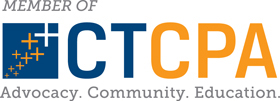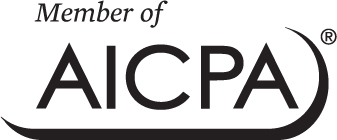 She was in tears…
She was in tears…
This was a very sophisticated client in complete hysteria. Although she was barely audible, I managed to make out what had happened.
She had just received a very aggressive and threatening call from the IRS demanding immediate payment on overdue taxes otherwise she would be put in jail. Under tremendous pressure she did the smart thing: she did not comply, and she immediately called her CPA—me! IT WAS A SCAM! Unfortunately, she wasn’t the only client who called my office in a panic over such a phone call from the IRS. In fact, CPA’s nationwide have received numerous calls over this scam.
How can you recognize a scam over a legitimate call from the IRS??
The Five Signs of a Scam:
- A call from the IRS demanding immediate payment. No calls are ever made to you from the IRS without first mailing out a notice.
- A demand that you pay taxes without first giving you the opportunity to question or appeal the amount they say you owe.
- Demands for immediate payment over the phone by cash, a prepaid debit card, wire or services, such as MoneyGram. In some variations of the scheme, the scammers ask for payment in iTunes gift cards.
- You are asked to provide credit or debit card numbers over the phone.
- Threats made to bring in local police or other law-enforcement groups to have you arrested for not paying.
But wait . . .
That call could be legitimate if you actually have an outstanding tax debt with the IRS. As early as spring of 2017 the IRS plans to begin private collections of certain overdue federal tax debts. The IRS has outsourced its debt collection to four contractors, see below. These agencies are required to respect taxpayer rights and abide by the consumer protection provisions of the Fair Debt Collection Practices Act.
What is not a scam:
- A written notice from the IRS stating that your accounts are being transferred to one of the designated private collection agencies.
- A second, separate letter from the agency confirming this transfer.
List of the approved private collection agencies:
- Conserve – Fairport, New York
- Pioneer – Horseheads, New York
- Performant – Livermore, California
- CBE Group – Cedar Falls, Iowa
What not to do:
- Never provide your personal information (address, date-of-birth, banking information, ID numbers) to people you do not know.
- Never make a payment by wire transfer or prepaid debit card.
What to do:
- Contact your CPA to assist you in handling your tax debt.
- If you are not sure that you owe taxes, call the IRS directly at 800-829-1040.
- You can find electronic payment options for taxpayers at https://www.irs.gov/payments
- Payment by check should be payable to the United States Treasury and sent directly to IRS, not the private collection agency.
The purpose of this article is to provide information, rather than advice or opinion. It is accurate to the best of the authors’ knowledge as of the date of the article. Accordingly, this article should not be viewed as a substitute for the guidance and recommendations of a retained professional.

